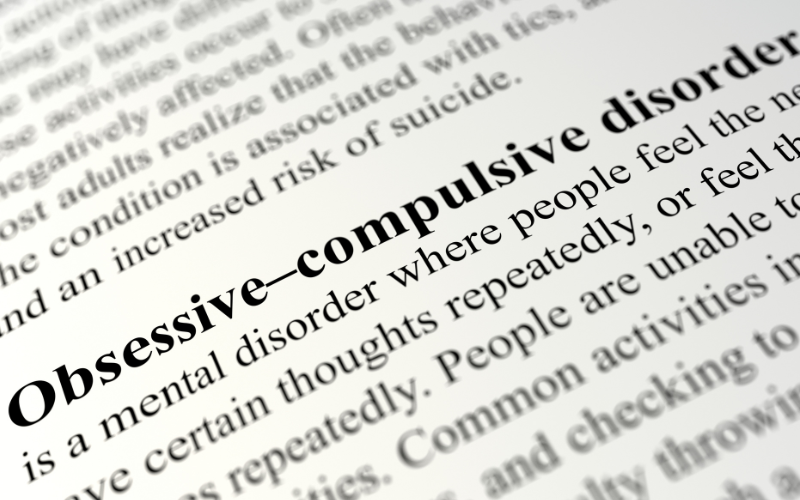Obsessive-Compulsive Disorder (OCD) is a mental health condition that affects millions of people worldwide. It is characterized by intrusive thoughts, known as obsessions, and repetitive behaviors, known as compulsions. These compulsions are often performed in an attempt to relieve the anxiety caused by the obsessions.
OCD can be a debilitating disorder, causing significant distress and interference in daily life. However, with proper treatment and support, individuals with OCD can lead fulfilling and productive lives.
Understanding Obsessive Thoughts (Obsessions)
Obsessive thoughts, or obsessions, are intrusive and unwanted thoughts that repeatedly intrude into a person’s mind. These thoughts can be distressing and cause significant anxiety. Common obsessions in OCD include:
- Fear of contamination or germs
- Harming oneself or others
- Intrusive sexual thoughts or images
- Excessive concern with order or symmetry
- Unwanted thoughts about blasphemy or religious themes

Compulsive Behaviors (Compulsions)
Compulsive behaviors, or compulsions, are repetitive actions performed in response to the obsessions. Compulsions are often performed in an attempt to relieve the anxiety caused by the obsessions, although they may also provide a temporary sense of relief. Common compulsions in OCD include:
- Excessive hand washing or cleaning
- Repeatedly checking locks, appliances, or other items
- Counting or arranging objects in a specific manner
- Repeatedly seeking reassurance from others
- Repeatedly performing mental acts, such as prayer or counting
Symptoms of Obsessive-Compulsive Disorder
The symptoms of OCD can vary widely from person to person. However, there are certain common features that are present in most individuals with OCD, including:
- Intrusive thoughts (obsessions) that cause significant anxiety
- Compulsive behaviors that are performed in response to the obsessions
- Significant distress and interference in daily life
- Difficulty resisting the urge to perform the compulsive behaviors
Causes of OCD The exact cause of OCD is not well understood, although there is evidence to suggest that genetic, neurobiological, and environmental factors all play a role. Brain imaging studies have shown that individuals with OCD have differences in brain structure and function compared to those without the disorder.

Treatment for OCD
There are effective treatments available for Obsessive-Compulsive Disorder, including cognitive-behavioral therapy (CBT) and medication.
CBT is a form of therapy that focuses on changing negative thought patterns and behaviors. Medication, such as selective serotonin reuptake inhibitors (SSRIs), can also be effective in reducing symptoms of OCD.
In some cases, a combination of therapy and medication may be the most effective approach. It is important to work with a mental health professional who is experienced in treating Obsessive-Compulsive Disorder in order to develop an individualized treatment plan.
Can I treat Obsessive-Compulsive Disorder on my own?
While it is possible to make lifestyle changes and engage in self-help techniques to manage symptoms of OCD, it is not recommended to treat OCD solely on your own. OCD is a complex and challenging mental health condition that often requires professional help and support.
Working with a mental health professional who is experienced in treating OCD can provide you with a personalized treatment plan, including therapy and/or medication, that is tailored to your specific needs and symptoms. They can also provide you with support, guidance, and resources to help you manage your OCD and improve your overall quality of life.
In addition, self-help techniques, such as mindfulness and relaxation exercises, can be beneficial in reducing symptoms of OCD. However, it is important to work with a mental health professional to determine the best self-help techniques for your individual needs.
Is Obsessive-Compulsive Disorder mental or neurological?
The psychological component of OCD involves intrusive thoughts and compulsive behaviors that are driven by anxiety and fear. These thoughts and behaviors are often related to specific themes, such as cleanliness or order, and can cause significant distress and interference in daily life.
The neurological component of OCD involves differences in brain structure and function compared to individuals without the disorder. Brain imaging studies have shown that certain regions of the brain, such as the basal ganglia and the orbitofrontal cortex, are involved in the development and maintenance of OCD symptoms.
It is also believed that imbalances in neurotransmitters, such as serotonin, play a role in the development of OCD. This neurobiological component of OCD is why medication, such as selective serotonin reuptake inhibitors (SSRIs), can be effective in reducing symptoms.

Frequently Asked Questions
Is OCD a common disorder?
Yes, OCD is a relatively common mental health condition, affecting millions of people worldwide.
What are the symptoms of Obsessive-Compulsive Disorder?
The symptoms of OCD include intrusive thoughts (obsessions) that cause significant anxiety and compulsive behaviors that are performed in response to the obsessions.
What causes OCD?
The exact cause of OCD is not well understood, although there is evidence to suggest that genetic, neurobiological, and environmental factors all play a role. Brain imaging studies have also shown differences in brain structure and function in individuals with OCD compared to those without the disorder.
Can OCD be treated?
Yes, OCD can be treated effectively with therapy and/or medication. Cognitive-behavioral therapy (CBT) and selective serotonin reuptake inhibitors (SSRIs) are commonly used to treat OCD.
How do I know if I have Obsessive-Compulsive Disorder?
If you are experiencing intrusive thoughts and repetitive behaviors that are causing significant distress and interfering with your daily life, it is important to seek the help of a mental health professional. They can diagnose and treat OCD, as well as provide you with support and resources.
Takeaway
Obsessive-Compulsive Disorder (OCD) is a mental health condition that affects millions of people worldwide. It is characterized by intrusive thoughts and repetitive behaviors that can cause significant distress and interfere with daily life. However, with proper treatment and support, individuals with OCD can lead fulfilling and productive lives. If you are experiencing symptoms of OCD, it is important to seek the help of a mental health professional for an accurate diagnosis and effective treatment.




